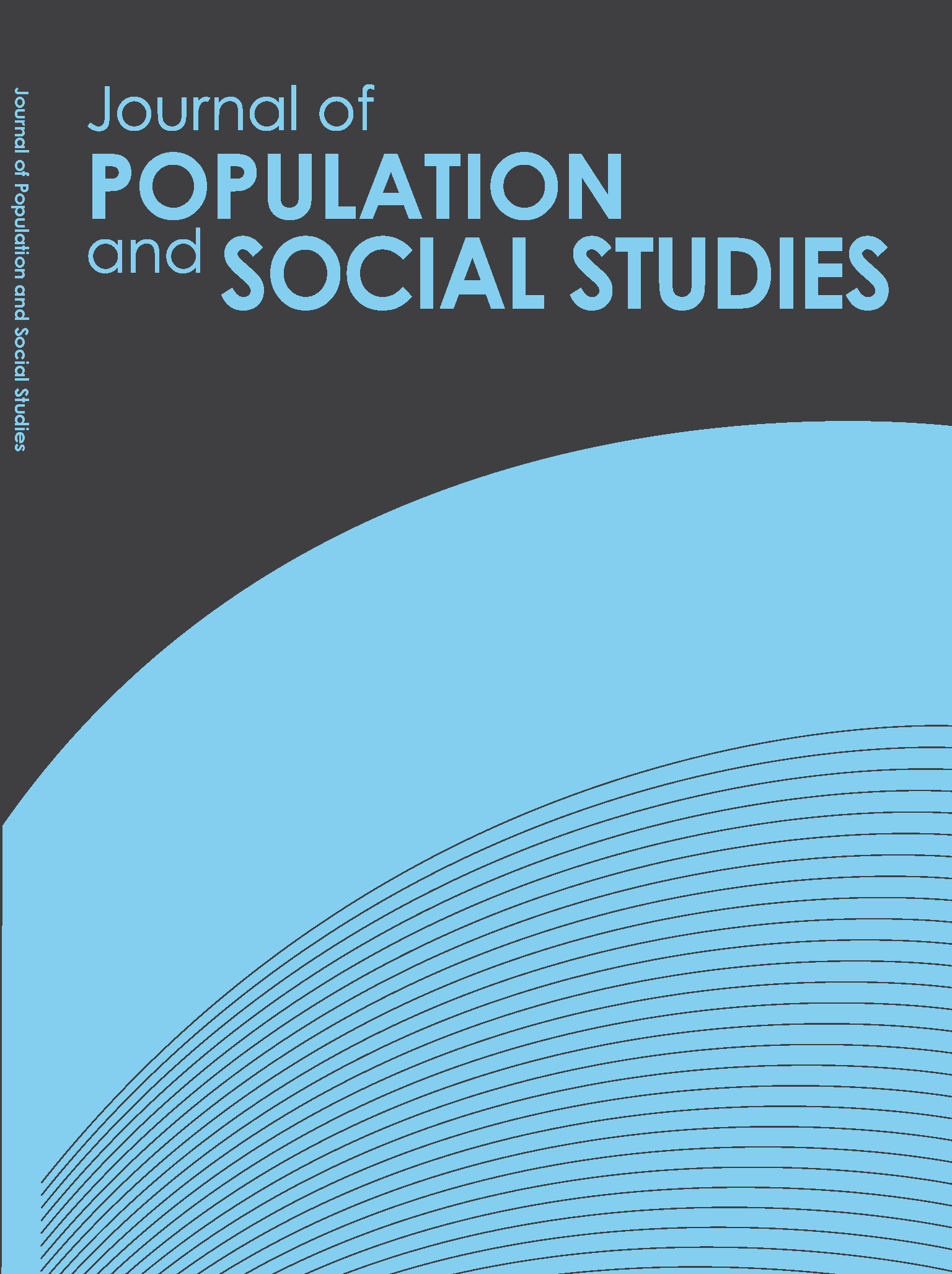Migration and Gender-based Occupational Segregation in Bangkok
Main Article Content
Abstract
The aims of the study are to examine trends of gender differentials in migration to Bangkok and the sex segregation in Bangkok occupational structure. The study used Thailand Population and Housing Censuses, 1970, 1980, 1990, and 2000 and data from the Project entitled “Demographic Responses to a Changing Environment in Nang Rong,
Thailand.” There is an obvious female predominance in the migration flow to Bangkok. The export-led economic orientation has been a crucial influence on female migration to the capital city and then to its five peripheral provinces. The new urban economy has stimulated
the demand for labors in manufacturing and service sectors which favors female laborers and has subsequently affected the gender-based occupational segregation in Bangkok. For example, considering the sex ratio during 1970-2000, there was a predominance of women
in service work, while work in administration, transportation, and production was dominated by males. This apparently reflects the phenomena of “men’s work” and “women’s work.” Furthermore, it was found that the occupations that Nang Rong migrants in Bangkok engaged in revealed the labor demand of the new urban economy and the impact of the
1997-2000 economic crisis.
Thailand.” There is an obvious female predominance in the migration flow to Bangkok. The export-led economic orientation has been a crucial influence on female migration to the capital city and then to its five peripheral provinces. The new urban economy has stimulated
the demand for labors in manufacturing and service sectors which favors female laborers and has subsequently affected the gender-based occupational segregation in Bangkok. For example, considering the sex ratio during 1970-2000, there was a predominance of women
in service work, while work in administration, transportation, and production was dominated by males. This apparently reflects the phenomena of “men’s work” and “women’s work.” Furthermore, it was found that the occupations that Nang Rong migrants in Bangkok engaged in revealed the labor demand of the new urban economy and the impact of the
1997-2000 economic crisis.
Article Details
How to Cite
Tangchonlatip, K., Punpuing, S., Chamratrithirong, A., Guest, P., Curran, S., & Rachapaetayakom, J. (2007). Migration and Gender-based Occupational Segregation in Bangkok. Journal of Population and Social Studies [JPSS], 15(1), 53–80. retrieved from https://so03.tci-thaijo.org/index.php/jpss/article/view/84592
Section
Research Articles


